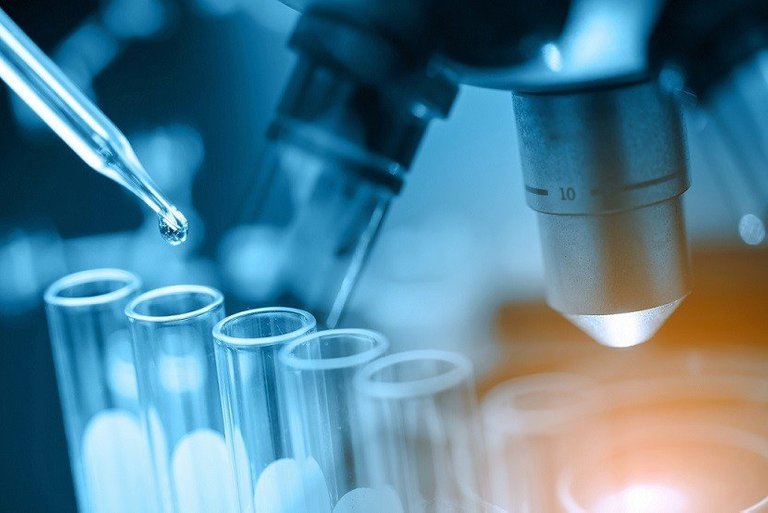
Phage therapy during Coronavirus
The exploration into Phage therapy during Coronavirus has been growing, as traditional methods have not proven to hold all the answers towards Covid-19. Deeper research into understanding the Coronavirus has revealed that Covid-19 is capable of infecting and multiplying in intestinal cells, indicating that it may not only be spread by airborne droplets.
Typical signs of infection with the new Coronavirus SARS-CoV-2 are fever and respiratory symptoms, however, between one-third and one-half of adult patients with Covid-19, present symptoms such as; nausea, intestinal pain, bloating and diarrhea. Coronavirus can also be found in a person’s stool after respiratory symptoms such as coughing, sneezing, and shortness of breath have been eliminated. This suggests that the virus can spread through the so-called ‘fecal-oral route’ transmission.
Coronavirus insights and development
The RNA of the Coronavirus was detected in mid-December of 2019 in a sewage sample from Turin and Milan two months before the first cases. A study of the wastewater in Barcelona revealed SARS-CoV-2 41 days before the first official infection in the city.
Covid-19 can be present without symptoms in 80% of cases, according to experts from McQuory University in Australia. This is the conclusion they drew from watching 225 cruise liner passengers. After 20 days of the cruise liner being in lockdown, an examination of all passengers revealed that 59% of tests gave a positive result. However, only 19% of those infected had symptoms and 81% had no symptoms.The asymptomatic flow can be manifested by mild intestinal complaints. Although the respiratory and gastrointestinal organs appear to be different, however, they have some key similarities, such as the presence of the cellular receptor ACE2. Through this receptor, the coronavirus can penetrate the cells. Researchers from the Hubrecht Institute, the Erasmus University Medical Center in Rotterdam, and Maastricht University, have experimentally proved that the SARS-CoV-2 virus can directly infect intestinal cells with both high and low ACE2 receptor levels.
Damage to ACE2 receptors leads to reduced tryptophan absorption and reduced antimicrobial peptide production, which results in changes in microbiota, inflammation, and increased intestinal permeability. LPS bacterial lipopolysaccharide enters the lymphatic system and bloodstream, resulting in the immune system responding with an excessive immune response leading to the cytokine storm. This is then followed by the development of acute respiratory distress syndrome (ARDS) and death threats.The treatment protocols recommended today are symptomatic and mainly aimed at mitigating the complications of the disease course. The use of bacteriophages may help prevent the cytokine storm in patients. Phages control the microbiota in the intestine and provide local immunity through an interaction with lymphoid tissue of the intestine, as well as with other tissues of the body through translocation. Natural lytic phage cocktails can be used by inhalation in pulmonary clinical manifestations, parenteral administration in intestinal manifestations, and intravenous administration during the cytokine storm. Bacteriophages have a very high safety profile and can be used without any side effects.
Phage therapy during Coronavirus
In many countries today the use of bacteriophages is strictly regulated. Today, countries where the industrial production of natural phage cocktails is established, and their use is officially approved can afford to conduct these clinical trials.Georgia has coped with the Coronavirus epidemic very effectively and so far, 958 cases have been recorded of which 838 have recovered and 15 have died. There are 105 patients in the hospital, mostly with mild forms of the disease, and conducting any clinical trials of phage therapy will result in little results.
The Russian Federation currently is the fourth-largest number of registered Covid-19 patients in the world and the largest production base of phage preparations in the world, by a state-owned company Microgen. Russia has a great experience in using phage cocktails to prevent intestinal infections during emergency natural disasters. If a decision will be made by the government, to go forward with clinical trials, the process will move forward fast and wide across. However, this scenario seems unlikely.
Today, Ukraine shows high dynamics of the Coronavirus disease growth and has a company producing 2 phage preparations: Intestifag and Pyofag. These preparations are found on the open market in a pharmacy network and are ready for application. With interest from the manufacturer’s company, these clinical trials can be conducted on a legal basis, in the shortest possible time and can produce large quantities.It should be noted that clinical trials should be conducted on the range of severe, intermediate, and mild forms of Coronavirus patients. The results of conducted clinical trials can seriously change today’s recommendations and approaches to quarantine activities, economic, and social restrictions.
Research sources:
COVID-19: in the footsteps of Ernest Shackleton
Alvin J. Ing, Christine Cocks, and Jeffery Peter Green. Published in Thorax 2020 | DOI: 10.1136
SARS-CoV-2 productively infects human gut enterocytes
Mart M. Lamers, Joep Beumer, Jelte van der Vaart, Kèvin Knoops, Jens Puschhof, Tim I. Breugem, Raimond B. G. Ravelli, J. Paul van Schayck, Anna Z. Mykytyn, Hans Q. Duimel, Elly van Donselaar, Samra Riesebosch, Helma J. H. Kuijpers, Debby Schipper, Willine J. van de Wetering, Miranda de Graaf, Marion Koopmans, Edwin Cuppen, Peter J. Peters, Bart L. Haagmans, and Hans Clevers. Published in Science 2020 | DOI: 10.1126
Role of Bacteriophage in COVID 19
Choudhari Omkar K, Ojha Umesh C, Rani Anita, and Spalgais Sonam. Published in International Journal of Scientific Research 2020 | DOI: 10.36106/IJSR
Posted from my blog: https://www.bacteriophage.news/phage-therapy-during-coronavirus/